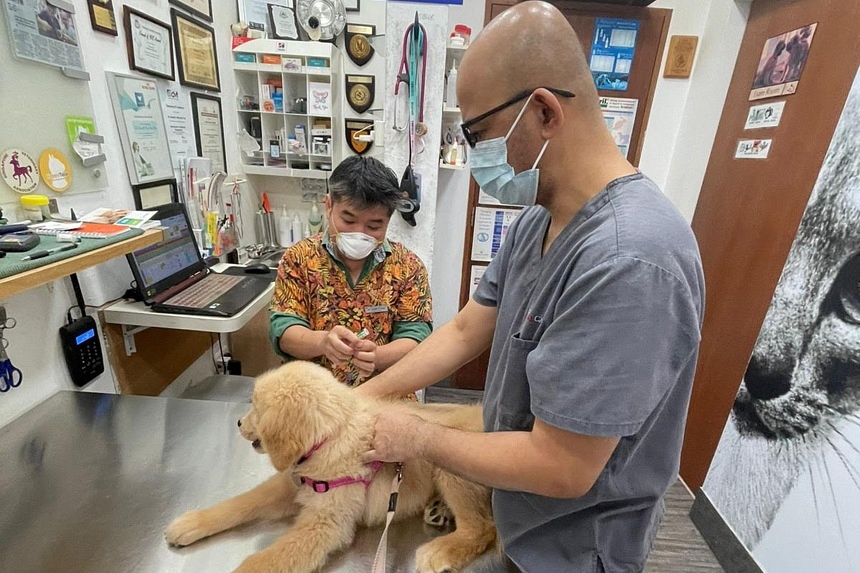Several vets said pet healthcare costs rise between 5 per cent and 10 per cent annually on average, and in the past two years (2022 and 2023), animal clinics in Singapore increased their fees by up to 20 per cent.
In contrast, Singapore’s core inflation average was 4.2 per cent for the whole of 2023.
Dr Tong said veterinary services like consultations and procedural fees are usually on the lower end of inflation at up to 5 per cent, while external items go up more, by 5 per cent to 10 per cent.
They include prescription diets, medicine, suture materials, blood analysers and test kits, fluid pumps, anaesthetic machines, ultrasound machines “and the cost to upkeep, maintain or service them”.
“These can spike by 10 per cent a year. The costs of sought-after or high-in-demand medicines can sometimes increase by 50 per cent,” Dr Tong said.
Rental and manpower costs, the two most significant items in the vet business, have increased tremendously over the past few years.
“Expectations of younger staff to have more rest days, fewer working hours per shift compared with the past, contribute significantly to increased costs, which get passed on to clients eventually,” Dr Chua said.
Dr Angeline Yang of VetMobile, a mobile veterinary service, does not have overheads such as rentals, but as a vet who goes to homes, she charges a little more for consultation. She says she thinks it is fairer, rather than increasing the price of medication.
Home consultations mean fear-free handling, especially with nervous or frail pets that do not fare well in a clinic.
“To be honest, if I (were to) factor in the cost of education, CE (continuing education), time, materials, staff, I would have to charge more. However, we made the decision to charge in a way that is affordable for the masses,” said Dr Yang, who is also a certified vet acupuncturist.

